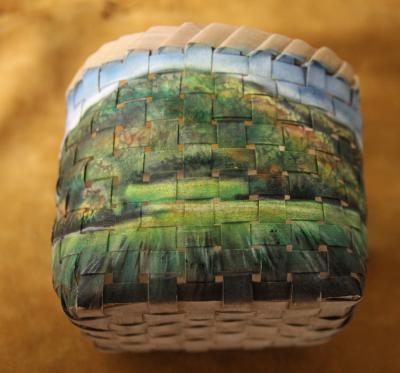Campus Acknowledges Abenaki Homeland

In the week leading up to October 14, the first official Indigenous Peoples’ Day in Vermont, campus community members were encouraged by the Diversity and Inclusion Task Force to examine their own role in dismantling colonialism. To start with, they were asked to make a general practice of acknowledging the Sokoki (Western Abenaki) people in whose homeland Marlboro College stands.
“Land acknowledgments are often given at the beginning of public events, or in my case at the beginning of my courses,” says anthropology professor Nelli Sargsyan. “Their intention is to bring into our collective awareness the Indigenous people who have been living here and the histories of various kinds that we, as settlers, have inherited as a way of grounding.”
Land acknowledgement was one of several ways that the task force called on the Marlboro College community to observe Indigenous Peoples’ Day. Community members were also urged to do their own research to find out more about the Sokoki people and Abenaki people in general, their history, and what some of them are up to now. Further, they were encouraged to explore their own relationships to this territory, and how they came to be here.
“Our acknowledgement needs to come with a commitment, and not be something we do because it is trendy or to check a box of things progressive institutions do,” says Nelli. At Town Meeting she shared some of the recent history of this area and the impacts of colonialism, including the Vermont Eugenics Survey and systematic sterilization, and offered resources to learn more. “We each need to ask ourselves, ‘What intentions do I have to disrupt and dismantle colonialism beyond this land acknowledgement?’”
